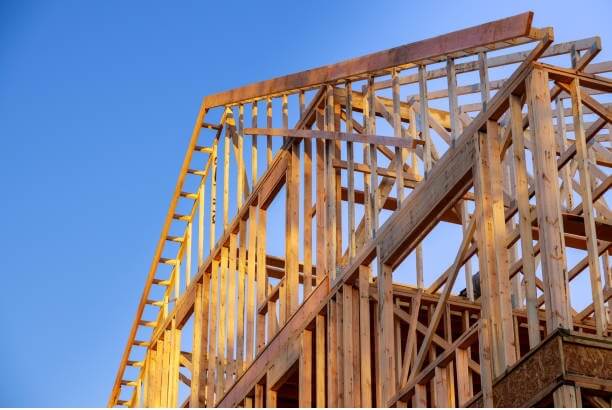The roof of a building is one of its most important parts. Without the roof, residents will not be protected from rain, sun, and other weather elements. One of the key ingredients that you need to construct a roof is wood.
The wood is mostly used for the roof frame as well as reinforcements. A very important to ask before purchasing wood or any other construction materials is how much they cost. So, how much does wood for roofing cost in Nigeria?
We will answer this question in the next section of this post. After this, we will discuss some other very important pieces of information about wood for roofing. Let’s get started.

Prices of Wood for Roofing in Nigeria
There are different kinds of wood used for roofing in Nigeria. As we mentioned above, it is important to find out the prices of these materials before going to the market. Doing this helps you to prepare adequately for the construction project at hand.
Going to the market by yourself to research prices might be a difficult task. Because of this, we took it upon ourselves to carry out the research on your behalf. After surveying the market, we have come up with a list of the different kinds of wood used for roofing and their prices. Check them out below:
Prices of Afara Plywood for Roofing
- Three-quarter inch (1 sheet): N5,500 – N6,500
- Half inch (1 sheet): N4,000 – N4,500
- One-quarter inch (1 sheet): N2,500 – N3,000
Prices of Harwood for Roofing
- 3 by 4 hardwood: N550 – N650
- 2 by 6 hardwood: N500 – N600
- 2 by 5 hardwood: N400 – N500
- 2 by 4 hardwood: N300 – N400
- 2 by 3 hardwood: N180 – N250
- 2 by 2 hardwood: N100 – N200
Prices of Softwood for Roofing
- 2 by 4 by 12 softwood: N650 – N750
- 2 by 2 by 12 softwood: N600 – N650
- 2 by 3 by 12 softwood: N540 – N590
- 1 by 2 by 12 softwood: N1,000 – N1,100
Prices of Obeche Plywood for Roofing
- Three-quarter inch (1 sheet): N4,700 – N5,200
- Half inch (1 sheet): N3,500 – N4,000
- One-quarter inch (1 sheet): N2,200 – N2,600
Note that the prices of these materials may change when you visit the market for several reasons. Firstly, the prices of construction materials fluctuate a lot due to market forces and government policies. Secondly, the prices may change because of your location or the vendor you buy from.
Factors to consider when choosing roofing materials for construction
Wood is just one of the components of a building’s roof. The roof is usually comprised of several materials. The question is, “how do you know the right materials to buy for a roofing project?” This question is very important considering the huge variety of materials on the market. In this section, we will be discussing some factors to help you choose the right roofing materials.
Architectural authenticity
Before you even started the construction of the building, there was a design on paper. To get the best results, you must follow that architectural design to the letter. Most times, the architect already has the kind of roofing material that you should use in mind. As such, you shouldn’t deviate from this design. As the architect questions to ensure that you pick the right roofing materials to match the design of the building.
Weather endurance
This is another very important factor for you to consider. What is the durability of each of the materials you choose in relation to the prevailing weather in your region? While efficient installation and maintenance are key, the response of the materials to weather is more important. Check for the endurance of roofing material to the weather in your zone before you purchase it.
Strength and durability
The roof is one of the most important parts of your building. As such, you wouldn’t want it to get damaged or blown off at the slightest wind or pressure. Because of this, you must invest in roofing materials that will stand the test of time.
Cost of the materials
Cost is a principal determinant of what roofing materials to purchase. How much can you afford for these materials at this moment? This will determine what materials you will be going home with at the end of the day. Ensure that you also make room for labour and miscellaneous expenses in your budget.

